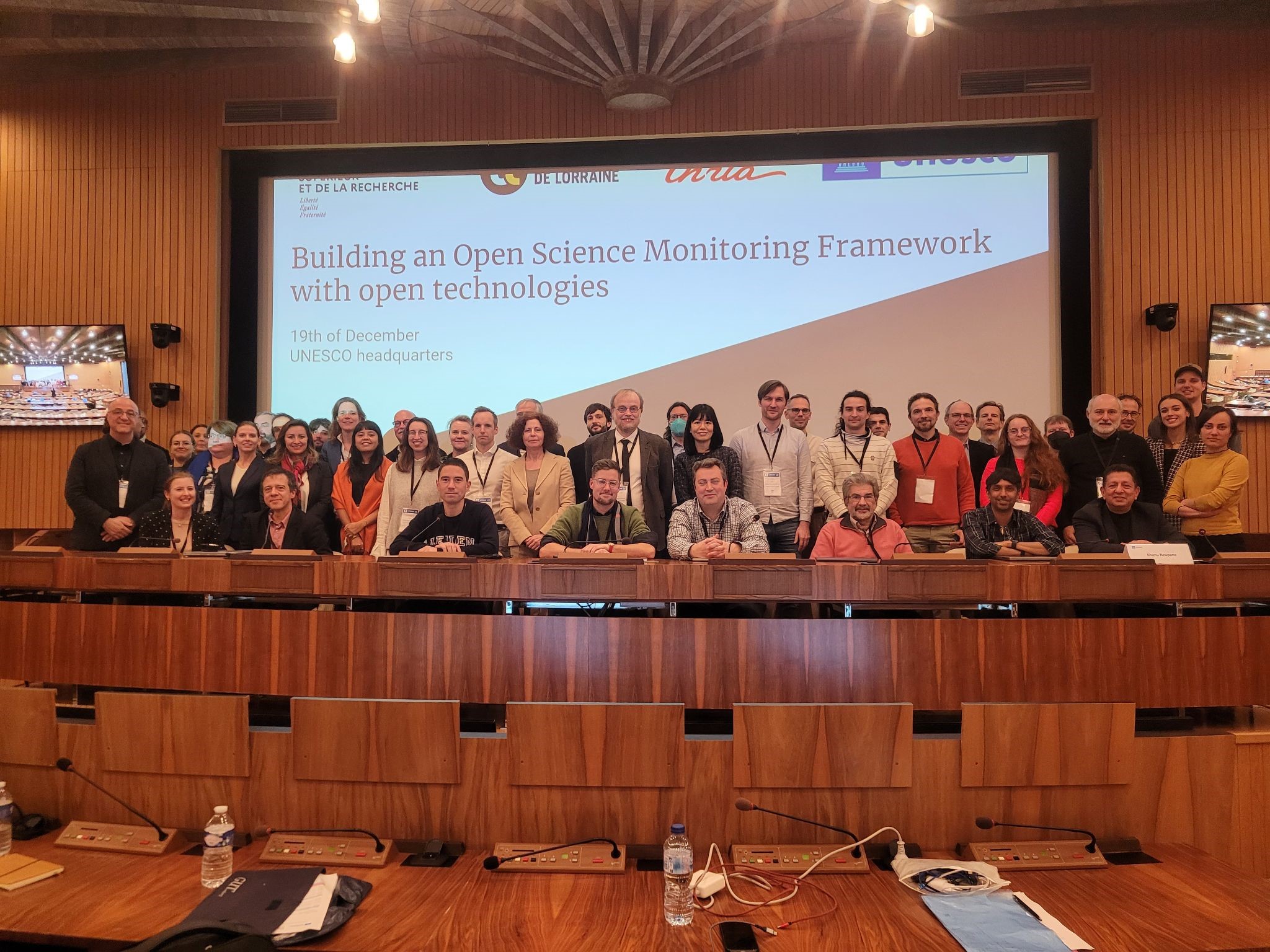‘Building an Open Science Monitoring Framework with open technologies’ : UNESCO workshop – 19/12/23
The worldwide development of public policies promoting open science implies that indicators need to be produced to allow their monitoring. The objective to reach is to enable the measurement of the scientific production openness, as well as its impact on the scientific process itself, and ultimately for society as a whole. Until now, efforts to achieve this have mainly focused on measuring the openness of research publications as well as of data and software produced by research along with that of the results of clinical trials and publication costs. In its Recommendation on Open Science, UNESCO encourages all its member countries to implement indicators. The international nature of research makes it essential for these indicators to be geographically and institutionally consistent worldwide. Many initiatives around the world aim to gauge the openness of science. It therefore seems useful to bring these together to work towards a convergence of general principles for monitoring the progress of open science.
For these reasons, France and UNESCO organised a workshop at UNESCO headquarters in Paris on December 19th 2023 to work towards achieving this objective. The day enabled international open science monitoring stakeholders to coordinate their efforts and foster the creation of an international community to drive the issue.
Over fifty experts from research organisations, universities, national agencies and nonprofit organisations from three continents (in Australia, Denmark, Japan, Mexico, Germany, the Netherlands, the United States, Canada, Argentina, France, Belgium, the United Kingdom, Spain, Switzerland, Italy and Portugal) came to Paris to take part in the event. Among the many institutions represented were the CERN, NASA, CWTS, OurResearch, Crossref, DataCite, SPARC Europe, Redalyc, the OECD, COKI, the Max Plank Digital Library, PLOS, CLACSO and the Hcéres (Science and Technology Observatory).

The principles for monitoring open science which the participants worked on aim to establish common guidelines for the various initiatives described above. More specifically they worked on the relevance of the indicators to be selected as well as on their transparency and reproducibility. Technical specifications will follow, aimed at bolstering the foundations of the nascent international open science monitoring community. This initiative’s objective is to simplify the implementation of open science monitoring initiatives for organisations and countries that require them.
The group will be communicating in the near future to set out tangible principles and implementation guides for the international scientific community.
The UNESCO Recommendation on Open Science
This sets out an internationally recognised definition along with a set of shared values and guiding principles for open science. The Recommendation also identifies a set of action points to work towards the fair and equitable operational implementation of open science for all at individual, institutional, national, regional and international levels.
- Find out more: https://www.unesco.org/en/open-science/about?hub=686
- Contact: openscience@unesco.org
The French Open Science Monitor
In France, an Open Science Monitor was implemented in 2018 by the country’s Ministry of Higher Education and Research working in partnership with the Université de Lorraine, the National Institute for Research in Computer Science and Control (INRIA) and Science-Miner. Currently this provides indicators on the openness of publications, clinical trials, observational studies and research data and software.
- Find out more: https://frenchopensciencemonitor.esr.gouv.fr/
- Contact: bso@recherche.gouv.fr






